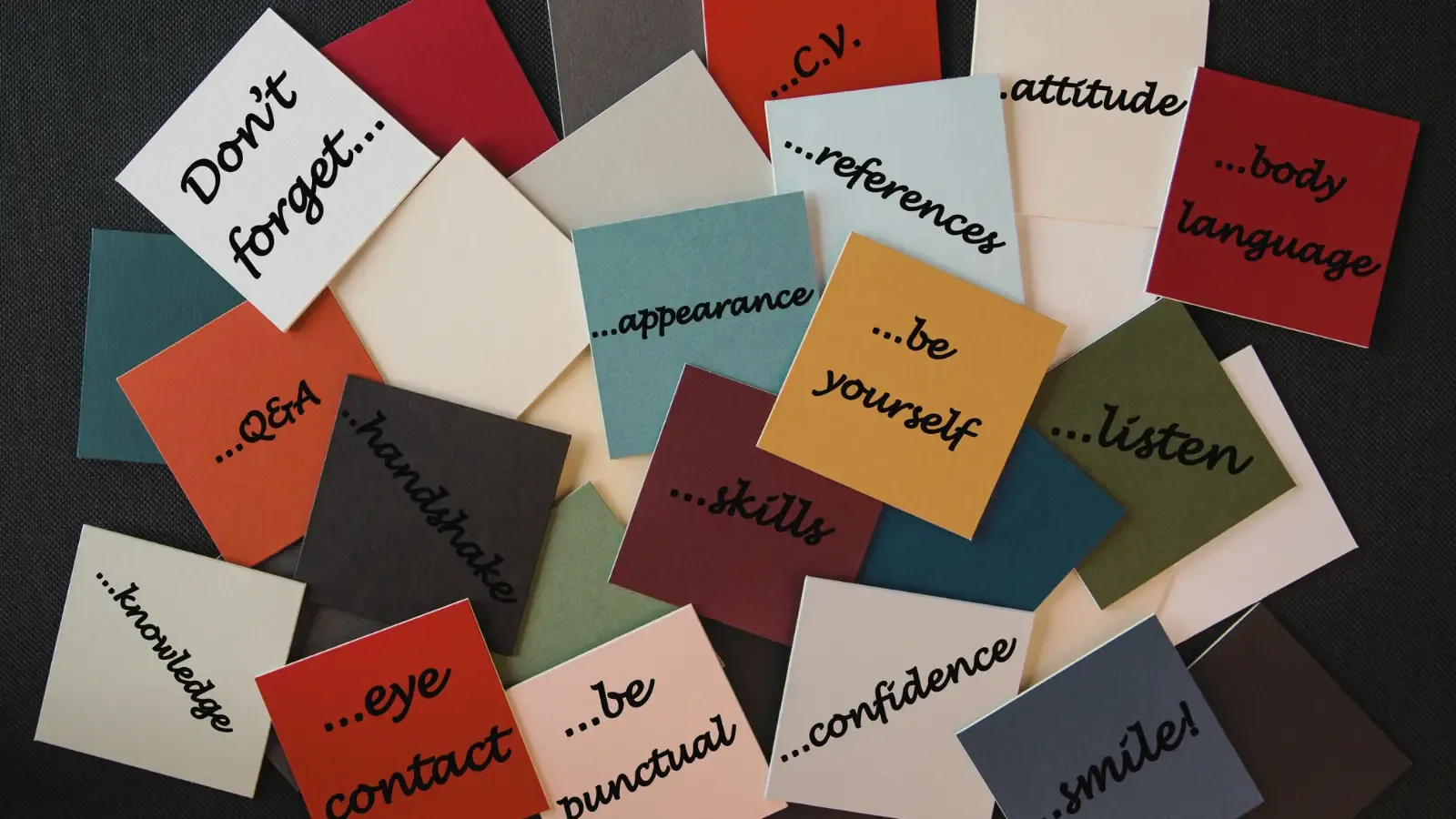You know your stuff. You've earned your seat at the table. But somehow, when you walk into that conference room or hit send on an important email, doubt encroaches. However, there is one important thing you need to know. You're not alone, and feeling uncertain doesn't mean you're unqualified. Research from the International Journal of Behavioral Science shows that 70% of people experience imposter syndrome at some point in their careers, and women are disproportionately affected. The difference between people who appear confident and those who don't isn't talent or competence. It's a set of learned behaviors and mindset shifts that anyone can develop.
Understanding workplace confidence (and why it matters)
What is important to understand is that confidence isn't about being the loudest person in the room or never experiencing doubt. Real confidence is the quiet belief that you can handle whatever comes your way, even when you're uncertain about the outcome.
Confidence can directly impact career advancement, salary negotiations, and leadership opportunities. When you project confidence, colleagues take your ideas more seriously, managers see your leadership potential, and you're more likely to advocate for yourself effectively.
The confidence gap is real. An internal Hewlett-Packard report revealed that women apply for jobs only when they meet 100% of the qualifications, while men apply when they meet just 60%. This isn't about capability—it's about confidence in facing uncertainty. The good news? Confidence is a skill you can build with practice.
1. Reframe your self-talk from critic to coach
The way you talk to yourself shapes how you show up at work. If your internal monologue sounds like a harsh critic, it's time for a rewrite.
In practice: Instead of thinking "I'm terrible at presentations and everyone will see right through me," try "I'm working on my presentation skills, and each one gets easier." See the difference? The first statement is a fixed judgment. The second acknowledges growth and possibility.

Dr. Kristin Neff, a leading researcher in self-compassion, found that people who practice self-compassion are more resilient, more motivated, and less afraid of failure. They're not delusional about their abilities—they're just kinder to themselves about the learning process.
Try this exercise: For one week, notice your self-talk patterns. When you catch yourself being harsh, pause and ask: "Would I say this to a friend?" If not, rephrase it. This simple awareness shift can dramatically change how you approach challenges at work.
The goal isn't toxic positivity, where you pretend everything's perfect. It's about treating yourself with the same grace you'd extend to a colleague who's learning something new. Because that's exactly what you're doing—learning, growing, and figuring it out as you go.
2. Master the two-minute power pose
Your body language doesn't just communicate confidence to others—it actually creates confidence within you. Harvard researcher Amy Cuddy's groundbreaking work on power posing revealed that standing in a confident position for just two minutes increases testosterone (associated with confidence) and decreases cortisol (the stress hormone).
Before your next important meeting, presentation, or difficult conversation, find a private space and stand in a power pose. This means feet hip-width apart, hands on hips or raised overhead, chest open, chin lifted. Hold it for two full minutes while taking deep breaths.
It might feel silly at first, but the physiological changes are real. Study participants who power-posed before mock interviews were rated as more confident, enthusiastic, and captivating than those who didn't. They also reported feeling more powerful and in control.
Beyond the power pose, pay attention to your everyday posture. Slouching signals uncertainty to your brain and everyone around you. Simple adjustments like sitting up straight, maintaining eye contact, and taking up appropriate space in meetings all contribute to how confident you feel and appear.
What could be helpful to keep you on track would be to set a recurring phone reminder for five minutes before important meetings. Title it something like "Power pose time!" This ensures you never skip this quick confidence boost.
3. Build evidence of your competence
Confidence isn't about convincing yourself of things that aren't true. It's about recognizing what's already true—your skills, accomplishments, and growth.
Start a "wins folder" in your email or a physical folder on your desk. Every time you receive positive feedback, complete a challenging project, learn a new skill, or overcome an obstacle, document it. Include specific examples:
- Screenshots of praise from colleagues or clients
- Project outcomes and metrics that improved because of your work
- Skills you've acquired and how you've applied them
- Problems you've solved and the impact of your solutions
When self-doubt shows up (and it will), you'll have concrete evidence that you are, in fact, qualified. This isn't about ego—it's about accuracy. You're simply correcting your brain's negativity bias with facts.
Research from the University of Pennsylvania shows that people who regularly reflect on their accomplishments experience less anxiety and demonstrate greater persistence when facing challenges. Your wins folder becomes both a confidence builder and a practical tool for performance reviews and job applications.
Review your wins folder monthly. Notice patterns in what you're good at, what energizes you, and how much you've grown. This practice transforms vague feelings of inadequacy into specific recognition of your capabilities.
4. Prepare like your confidence depends on it (because it does)
There's a reason experienced professionals often appear more confident: they've done their homework. Confidence and preparation are intimately connected.

Before any high-stakes situation, prepare thoroughly. This doesn't mean memorizing a script—it means understanding the material well enough to be flexible. Research your topic, anticipate questions, practice your key points, and prepare for different scenarios.
For presentations, practice out loud at least three times. Yes, it feels awkward talking to your empty living room, but it works. Your brain needs to rehearse the words, transitions, and flow. By the third run-through, you'll feel substantially more confident.
For difficult conversations, write out the main points you want to make. Consider the other person's perspective and prepare responses to likely objections. This isn't about being combative—it's about going in grounded and clear.
For networking events where you feel out of place, prepare three conversation starters and a brief way to describe what you do. Having these ready reduces the cognitive load and frees you to actually connect with people rather than anxiously searching for words.
Preparation isn't about controlling every outcome. It's about equipping yourself to handle uncertainty with grace. The confidence comes from knowing you've done the work, regardless of what happens.
5. Take action before you feel ready
Here's a truth that sounds counterintuitive: You don't build confidence by waiting until you feel confident. You build confidence by taking action despite feeling uncertain.
Confidence is the result of action, not the prerequisite for it. Every time you do something slightly outside your comfort zone, you send your brain a message: "I can handle challenging things." This creates a feedback loop where action builds confidence, which makes the next action easier.
Start with low-stakes practice. If you're nervous about speaking up in meetings, start by making one contribution in the first ten minutes—even if it's just agreeing with someone else's point and building on it. If you're intimidated by networking, commit to one conversation at the next event.
The key is consistency over intensity. Small, regular actions outside your comfort zone build confidence more quickly than occasional, big leaps. Research shows that incremental challenges, what they call "micro-doses of courage," are more effective for building lasting confidence than sporadic bold moves.
Set a "courage quota": Each week, commit to doing one thing that makes you slightly uncomfortable. Send that pitch email. Ask a question in the team meeting. Request feedback from your manager. These small acts compound into genuine confidence over time.
You'll never feel 100% ready, and that's okay. Confidence isn't the absence of fear—it's moving forward with the fear present. The more you practice this, the more your default response becomes action rather than hesitation.
6. Find your confidence anchors
Confidence isn't one-size-fits-all. What makes you feel powerful might be completely different from what works for your colleague. Your job is to identify your personal confidence anchors—the specific things that reliably boost how you feel and show up.
These might include:
- Wearing certain outfits that make you feel put-together
- Listening to a specific playlist before important meetings
- Having a morning routine that grounds you
- Surrounding yourself with specific people who remind you of your capabilities
- Using certain phrases or mantras that recenter your mindset
Pay attention to patterns. When have you felt most confident at work? What were you wearing? Who were you with? What had you done that morning? What were you telling yourself? Mine these moments for insights.
Create rituals around your confidence anchors. If you feel most powerful in structured blazers, designate certain pieces as your "confidence uniform" for important days. If a particular song pumps you up, make it the first thing you listen to before presentations.
These anchors work because they create consistency and signal to your brain that you're entering a confident state. Over time, the anchor itself becomes a trigger for the feelings and behaviors you associate with it. This is classical conditioning working in your favor.
7. Surround yourself with confidence builders
Your environment dramatically impacts your confidence. The people you spend time with, the content you consume, and the spaces you occupy all send messages about what's possible for you.
Audit your inner circle. Who makes you feel capable and supported? Who diminishes your confidence or makes you question yourself? You don't need to cut people out of your life, but you do need to be intentional about who has significant influence over your mindset.

Seek out mentors and colleagues who believe in you, especially when you're struggling to believe in yourself. Find communities of women in your field who get it—the challenges, the doubts, the wins. Online communities, professional organizations, and even LinkedIn groups can provide this connection.
Be equally mindful about what you consume. If following certain social media accounts makes you feel inadequate, unfollow them. If comparing yourself to peers leaves you deflated, limit your exposure and redirect that energy toward your own path.
Create a "confidence content library" filled with resources that inspire and energize you. This might include:
- Books about women who've overcome significant obstacles in your field
- Podcasts featuring honest conversations about professional growth
- Articles that remind you of what's possible
- TED talks that shift your perspective
Your confidence isn't formed in isolation. It's shaped by every interaction, every piece of content, and every environment you regularly inhabit. Be strategic about what you allow into your sphere.
Building confidence is a practice, not a destination
Some days, you'll walk into work feeling unstoppable. Other days, you'll wonder how you fooled everyone into thinking you know what you're doing. Both are normal. Both are part of the process.
Building unshakeable confidence at work isn't about never experiencing doubt; it's about learning to navigate it effectively. It's about developing a toolkit of strategies that help you move forward regardless of how you feel. It's about recognizing that confidence is a skill you practice, not a personality trait you either have or don't.
Start with one strategy from this list. Maybe it's the power pose before your next meeting, or starting your wins folder this week, or simply paying attention to your self-talk. Master one before adding another. Small, consistent actions compound into significant changes.
You didn't make it to where you are by accident. You have the skills, intelligence, and resilience to thrive in your career. Now it's time to build the confidence that matches your competence. Because when you show up fully in your power, everyone benefits—especially you.
 THE WORKING GAL
THE WORKING GAL





